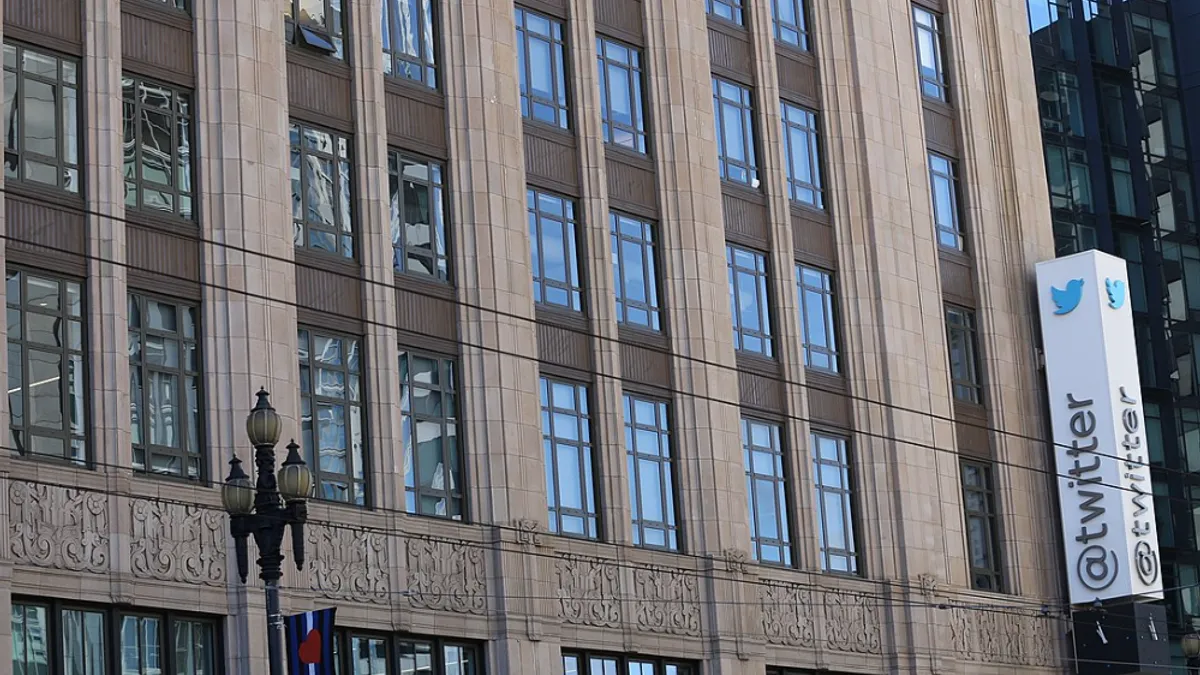If top executives fired on Elon Musk’s first day sue to collect their severance pay, discovery could become a source of trouble for them if it reveals the company has more bot accounts than it claimed when the two sides were trading barbs over the deal earlier this year.
Musk this week tweeted images of text messages he’s uncovered since taking over the company that show internal concern that Twitter’s long-time claim of a 5% fake account rate might actually be closer to the 20% that Musk was claiming as one of his reasons for trying to nix the deal.
“If Amir continues to BS me my escalation route is ‘Amir’s OKRs [objectives and key results] are entirely based on fraudulent metrics,’” Yoel Roth, Twitter’s global head of safety and integrity, texted in mid-May, referring to an employee who appears to track the company’s rate of false accounts.
To the extent the metrics are fraudulent, Roth went on, he is “doing what Elon is accusing us of doing.”
That kind of internal information, which Musk now has access to as the company’s owner, could become fodder if the executives decide to challenge Musk to show cause for their firings.
In any lawsuit like this, an “employer can share its reason, airing the laundry” to justify why it fired the executives, Peter Glennon, a business and employment litigation attorney who is founder of The Glennon Law Firm based in Rochester, N.Y., told Legal Dive.
That could make any decision to sue Musk risky, since it could play into his claim that he fired the executives for cause.
“Stay tuned, more to come,” Musk said on Twitter this week, referring to the potential of more internal communications coming to light.
Second thoughts
Musk said in May that inaccurate bot numbers was one of his reasons he was prepared to back out of the $44 billion deal.
“20% fake/spam accounts, while 4 times what Twitter claims, could be *much* higher,” Musk said in a May 17 tweet.
Musk sought information from Twitter on the fake accounts in April after he signed the binding agreement to buy the company for $54.20 a share, a roughly 38% premium over the company’s price of just under $40 at the time. The company’s share price later dropped, increasing the financial risk of the deal at the same time the value of Musk’s shares of his own companies, including Tesla, dropped on the falling strength of the broader economy.
At the time, analysts were saying Musk’s concern over the percentage of bot accounts might be a pretense for getting out of the deal after the economics of the deal soured.
It sounds like a “dog ate the homework” excuse for canceling the deal, Dan Ives of Wedbush Securities told The Economist.
Twitter responded to Musk’s point about the bot rate by releasing data showing about 5% of its accounts were bots, a number it had been using for years.
The two sides were set to go to court in October over his threat to nix the deal when Musk unexpectedly reversed course and said he would move forward with the purchase. The deal closed last week.
Determining cause
If he ends up showing the number of bot accounts to actually be higher than what executives were saying, that could help Musk show he had cause for the firings even though he had only been head of the company for one day before letting them go.
“A new owner can come in and review any person’s performance, and if they see a cause, determination is sufficient,” Glennon said.
The executives – CEO Parag Agrawal, CFO Ned Segal and Chief Legal Officer Vijaya Gadde – stand to lose more than $100 million in “golden parachute compensation” if they can’t successfully challenge their for-cause firing, most of that in the form of accelerated vesting of shares.
The accelerated shares are expected to be worth $56.4 million for Agrawal, $43.8 million for Segal and $19.4 million for Gadde, according to a CNN Business report. They also stand to lose their base pay and health insurance benefits for the year.
Separate from the parachute payments, the executives, as company shareholders, are owed more than $65 million from the purchase based on the $54.20 per-share price. Agrawal has 155,000 shares worth $8.4 million, Segal has 406,000 shares worth $22 million and Gadde has 642,000 shares worth $34.8 million, according to the CNN Business report.











